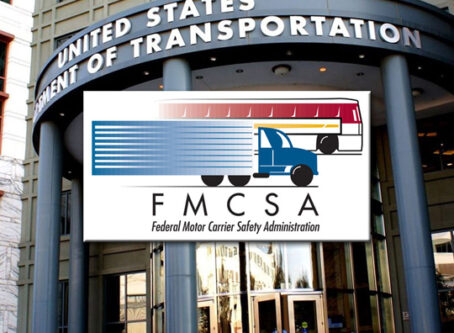Appellate court ruling favors carrier accused of religious discrimination
The 11th Circuit U.S. Court of Appeals has ruled in favor of a Florida trucking company after a former driver sued the company for religious discrimination. The lawsuit accused the company of retaliatory action after denying the driver Sundays off work to attend Jehovah’s Witnesses services.
On July 27, the appellate court panel affirmed a Middle District of Florida district court’s decision to award Indian River Transport summary judgment for alleged religious discrimination against Bobby Walker, a former driver. Walker resigned after what he felt was retaliation from the company for requests for all Sundays off work.
Walker filed the lawsuit against Winter Haven, Fla.-based Indian River Transport in September 2015. According to court documents, Walker began driving for Indian River Transport in November 2013. When hired, Walker requested local routes since the 70-hour clock could start on any given day. No local routes were immediately available. Walker ended up getting a local route hauling milk from Live Oak, Fla., to a plant in Orlando, Fla.
A few weeks later, Walker was waiting to unload on a Saturday evening. Worried that he would have to wait until Monday to unload, Walker requested Sundays off to attend religious services.
According to the lawsuit, the facility Walker delivered to shuts down and does not receive or allow loads on Sunday, resulting in no hardship to the company on the rare occasions Walker’s particular route required any Sunday driving.
Walker alleged that during a discussion with the dispatch supervisor and upper management, the driver was told the denied request was not because of his religion but because it seemed that the religion was getting in the way of his work. More specifically, the dispatcher allegedly told Walker his wife was very religious but that she always put her job first.
Indian River Transport compromised by pulling Walker off the route because he could not be there on Sundays, but said they would find something else for him. The dispatcher suggested a local day-to-day run that was more flexible.
However, the lawsuit alleged that Walker was pulled from his route and did not receive a new route for more than a month, effectively terminating his position. Walker then filed a charge of discrimination with the Equal Employment Opportunity Commission. In response, Indian River Transport offered Walker some runs. However, the driver then accused the company of intentionally offering him low-paying routes and being assigned inferior equipment, forcing him to quit.
In January 2017, a district court judge granted Indian River Transport summary judgment, stating that Walker never suffered adverse employment action for requesting Sundays off or for filling an EEOC complaint. The court ruled that the trucking company provided the driver with reasonable accommodation.
The district court concluded that Indian River Transport could not have accommodated Walker’s request without suffering undue hardship. This was backed up by pointing out the distance and hours-of-service regulations making it impossible for drivers to be promised a day off. A scheduling mishap could lead to a loss of milk and, consequently, loss of revenue.
“Indian River was therefore justified in declining Walker’s request for Sundays off,” the court opined. “As the record demonstrates, however, Walker was proved a reasonable accommodation, runs which did not require Sunday work.”
The court pointed to evidence that revealed Walker refused numerous offers for various runs for reasons unrelated to religious beliefs, including refusing runs with long waits. In addition to an employer’s duty to reasonably accommodate religious practices of employees, the employee has a similar duty to make a good faith attempt to accommodate religious needs through means offered by the employer. The district court judge referred to Walker’s refusal to accept other runs when explaining how Walker did not act in good faith.
Walker appealed the district court’s decision. On July 27, the court of appeals affirmed the district court’s decision, keeping Indian River Transport off the hook for any claims of religious discrimination against Walker.









